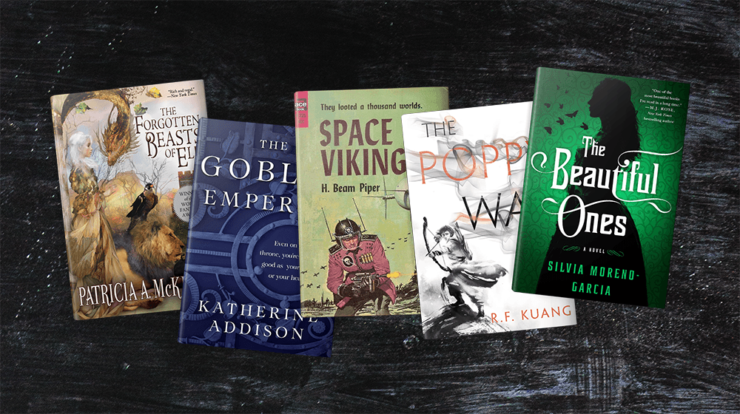When one is affronted, one may choose to respond with forbearance (settling differences over a glass of wine… or a can of beer) or revenge. Offer the prospective victim a cask of Amontillado and then wall the bastard up alive. Preferably whilst singing a cheerful song of vengeance, because who does not like music?
On the whole, society works better if people choose forbearance. But revenge gives ever so much more opportunity for drama. Guess which option science fiction and fantasy authors seem to prefer?
Here are six of my favourite SFF novels of revenge (and forbearance).
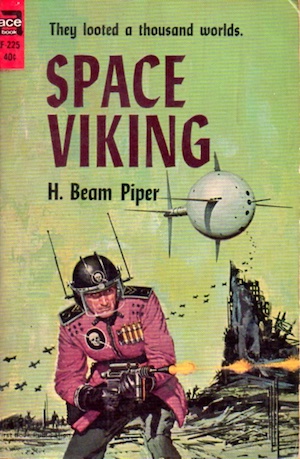
H. Beam Piper’s Space Viking starts with a happy event, the marriage of Lucas, Lord Trask, to Lady Elaine. But the mad Lord Andray Dunnan has decided that Elaine’s rejection of his suit was a personal insult and has plotted to kill Trask and Elaine. Dunnan kills Elaine, misses Trask, and flees in a stolen spaceship. Trask sets out to find and punish his wife’s killer.
Space is huge; finding a single person who could be hiding on any one of myriad worlds is close to impossible. Trask comes up with what he thinks is a better plan. He will turn Space Viking. He will raid defenceless worlds, grow rich and famous, and thus tempt the vengeful Dunnan to come looking for him. It’s not the craziest plan for revenge, but it is the bloodiest. Trask the Space Viking gets his way with hellburner bombs, destroying millions of lives in the course of his cunning plan. Even Trask realizes that he has become a monster.
This is not a good book, but it has a curious pulp-ish charm.
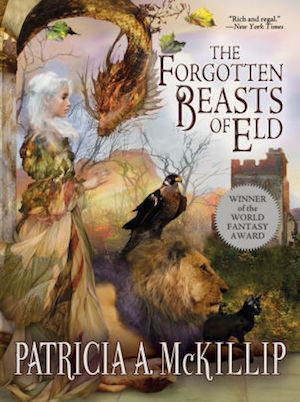
In The Forgotten Beasts of Eld by Patricia A. McKillip, the Lady Sybel loves her life of magnificent isolation, enjoying her magic and her menagerie of mythical beasts. She only reluctantly agrees to give refuge to the infant Tamlorn; otherwise the child would be killed by King Drede (who was married to Tamlorn’s mother and is possibly the father of poor Tamlorn).
Tamlorn could have lived a quiet life on Sybel’s estate, were it not that he’s a valuable playing piece in a dynastic dispute—or if Drede had enough sense to know when to leave well enough alone. Drede hires a wizard to bind Sybel; Sybel strikes back. Carnage ensues.
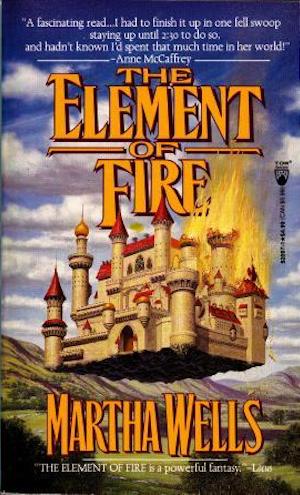
Captain Thomas Boniface, the protagonist of The Element of Fire by Martha Wells, is (unlike a lot of protagonists on this list) not a man consumed with a passion for vengeance beyond all reason. Boniface is simply a man charged with defending the kingdom of Ile-Rien. This puts him in direct opposition to sorcerer Urbain Grandier, who is a man consumed with a passion for vengeance beyond all reason. Having been abused by the religious extremists of neighbouring Bisra, Grandier has devised an ingenious scheme to even the score. Woe to anyone who comes between Grandier and his goal…such as the entire realm of Ile-Rien.
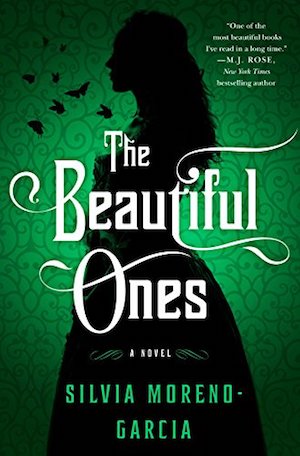
In Silvia Moreno-Garcia’s The Beautiful Ones, Valérie Beaulieu is forced to spurn the poor man she loved, Hector Auvrey, and marry a wealthier man. Years later, Hector returns to the city where his heart was broken. He is now a rich and famous man, thanks to his remarkable talent for telekinesis. In the city he meets Nina, a young aristocratic girl with an untrained but potentially enormous telekinetic talent. Nina also happens to be Valérie’s niece.
Hector courts the niece, which angers her aunt Valérie. Valerie may have been forced to give up Hector, but she feels she still owns him. What follows is a story that will delight anyone who felt Dangerous Liaisons was woefully short on Force Adepts.
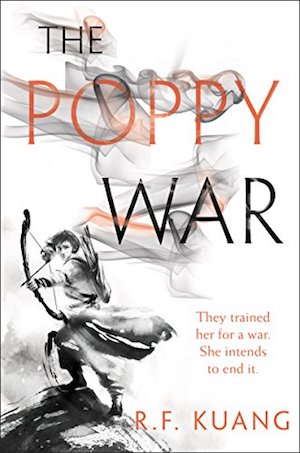
Like Valérie, war orphan Fang “Rin” Runin’s adopted family wanted her to sacrifice her happiness to an advantageous arranged marriage. Rin, the protagonist of R. F. Kuang’s The Poppy War, finds a way out. She takes the Keju test…and passes. She wins admittance to a prestigious military academy.
Her fellow students and even her teachers disdain her. A poor orphan, indeed! Determined to make her way, she chooses to study a dangerous shamanic discipline. If she succeeds, she will become incredibly powerful.
A neighbouring realm, the Federation of Mugen, sets out to conquer Nikan, Rin’s homeland. Mugen wants land, not people, setting genocide in motion. Rin has the power to retaliate—which she does on an even vaster scale.
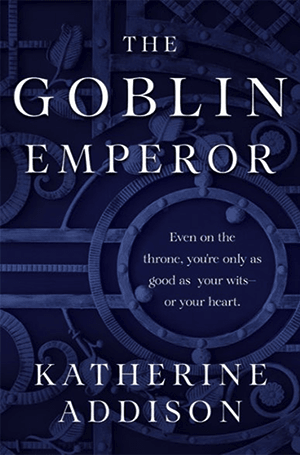
Katherine Addison’s The Goblin Emperor also explores the miseries of arranged marriage. Archduke Maia Drazhar is the half-goblin reminder of a political marriage Emperor Varenechibel would prefer to forget. Maia has been exiled from court, to live in an isolated, dilapidated manor under the resentful eye of an abusive guardian.
His father’s neglect saves Maia’s life. When an assassin kills the emperor and all of the other heirs to the throne, Maia becomes emperor. Now he has the power to take revenge for every slight and abuse he has suffered. It’s a power he does not exercise. He is tempted, and sometimes struggles, but always takes the path of compassion. He’s one of the more appealing protagonists in recent SFF.
Revenge makes for high drama, but compassion can enthrall as well. I’ve run out of space here but I’d be happy to explain at greater length down in my wine cellar. Care for a glass of Amontillado?
In the words of Wikipedia editor TexasAndroid, prolific book reviewer and perennial Darwin Award nominee James Davis Nicoll is of “questionable notability.” His work has appeared in Publishers Weekly and Romantic Times as well as on his own websites, James Nicoll Reviews and Young People Read Old SFF (where he is assisted by editor Karen Lofstrom and web person Adrienne L. Travis). He is a finalist for the 2019 Best Fan Writer Hugo Award, and is surprisingly flammable.










